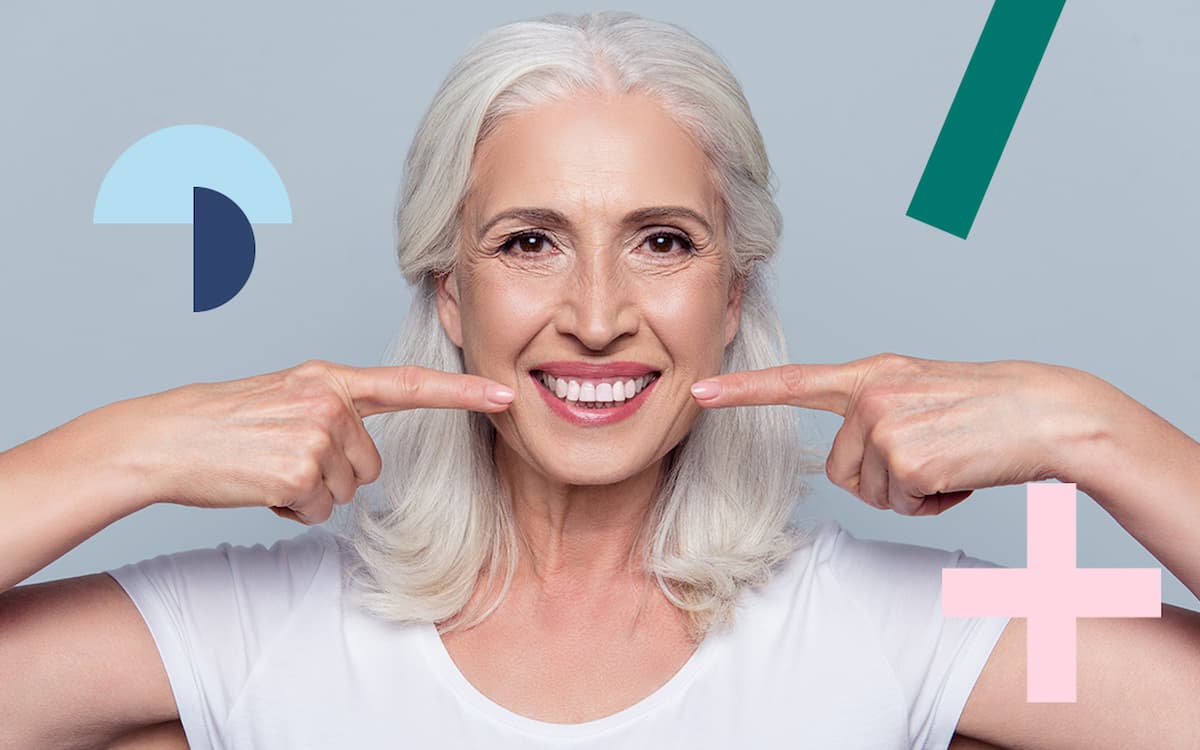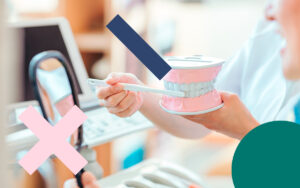With age, the teeth weaken and there is an increased risk of some oral problems. For this reason, dental care for older adults is a priority to maintain good oral health , closely related to general health.
Just like in childhood, teeth in old age have their own needs . Your mouth changes as you age, but with proper care and regular annual check-ups, you can maintain a healthy mouth at all times.
Why is dental care important for older adults?
We use our mouths every day of our lives. To breathe, speak, drink, eat, and do all kinds of activities that can affect the general health of our body.
The teeth and gums, like the rest of the body’s tissues, also age . But the deterioration of the mouth can be less if more attention is paid to its care.
In the elderly, the chances of the appearance of different diseases such as periodontal disease or caries increase, being favored by the secondary effects on the mouth of the use of dental prostheses or the taking of certain medications .
Consequences of poor oral hygiene in older adults
What happens in older adults when proper dental hygiene has not been followed, or if it is neglected during this stage? The main consequences are the following:
- Gum pain that causes difficulty eating.
- Dry mouth, affecting speech and proper nutrition.
- Aesthetic problems that affect the self-esteem of the elderly.
- Negatively influence general health, affecting cardiovascular diseases, diabetes, respiratory or gastrointestinal infections.
Tips for taking care of oral health in the elderly
Sometimes it is inevitable that an older person’s health problems will affect the state of their mouth . The person’s immune system can be affected, and there are organs that do not work 100%, such as the salivary glands.
In older adults, the problem of dry mouth is common, which increases the risk of cavities and bacterial or fungal infections. The deterioration of the teeth, and the retraction of the gums can lead to the loss of dental pieces, with the only alternative being to replace them through fixed or removable prostheses.
For all these reasons, it is very important to take care of oral hygiene on a daily basis. Medical organizations recommend a series of tips for the elderly to protect their mouth easily and effectively.
Ensuring good oral hygiene
It is essential to brush your teeth after each meal . This is especially important before going to bed at night. For brushing, it is recommended to use fluoride toothpaste and a soft toothbrush that does not damage the enamel and gums.
The use of dental floss and mouthwashes or mouthwashes is also recommended. Do not forget to brush the tongue at the end for a complete cleaning.
Avoid dry mouth
At the first symptoms of dry mouth, it is important to drink plenty of water. With the simple gesture of hydrating yourself properly, you considerably increase the production of saliva.
When xerostomia or dry mouth is due to a major health problem or to taking a medication, there are products that help combat it, avoiding the discomfort that dry mouth causes when talking or eating.
Cleaning and maintenance of the dental prosthesis
As important as taking care of natural teeth and gums, is the maintenance of the dental prosthesis. There are special brushes and cleaning products that remove dirt, preventing abrasion and wear.
The prosthesis must be cleaned separately, brushing your teeth without it . This is removed at bedtime to allow the tissues to rest and regenerate overnight.
Sometimes the prostheses can erode the mucosa of the gums. If lesions appear, there are specific gels to reduce them.
Visit the dentist regularly
In addition to dental care at home, the older adult should continue to visit their dentist regularly.
A dental check-up by a professional is the best option to detect any health problem in time , as well as to receive advice on the guidelines to follow in maintaining oral hygiene.
Other healthy habits for older adults
To continue promoting dental care in older adults, there are other habits that can be instilled in daily life:
- Avoid dry mouth by stimulating salivation by eating sugar-free candies or eating hard foods.
- Do not eat sticky foods that can damage the teeth or the prosthesis.
- Avoid sweet foods as much as possible, especially before going to sleep.
- Limit or give up tobacco and alcohol consumption.
- Constantly moisten lips with Vaseline or cocoa with sun protection.
- Treat any sores or canker sores that appear to prevent the injury from getting worse.
- See a doctor or dentist to treat oral health problems as soon as possible .
Dental care in older adults is synonymous with maintaining general health. You don’t have to lower your guard at any time in life to enjoy a healthy and beautiful mouth.
BIBLIOGRAPHY
+ Oral care guide for the elderly. General Council of Colleges of Dentists and Stomatologists of Spain.
+ Oral health tips for the elderly. COEM Foundation of the College of Dentists and Stomatologists of Madrid.
+ Oral health care for the elderly: good practices based on the health promotion paradigm.








